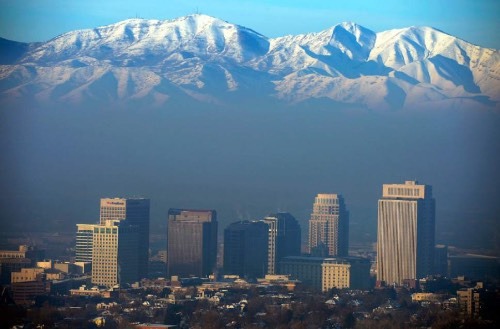
Air Quality
This Praxis Lab taught by an atmospheric scientist and a writer/activist explored the broad issue of air quality through the science, economics, and policies that control the quality of the air we breathe. Air pollution affects everyone, regardless of age, race, education, or class. Poor air quality adversely impacts human health, terrestrial and aquatic ecosystems, visual aesthetics, and even economic vitality. Bad air respects no political boundaries; solutions to these challenging problems require cooperation between individuals, industries, and governments, sometimes on a global scale.
This course began by investigating air quality problems in metropolitan regions. The students learned how air pollutants enter the atmosphere, how they are chemically transformed, how the atmosphere acts to concentrate or disperse these pollutants, and how they are ultimately removed from the atmosphere. A series of guest lecturers, and experts on the health, environmental, and economic impacts of air pollution were presented to the students. Students then examined the roles played by energy use policy, urban planning, politics, and lifestyle choices. In the second semester, students created a class project of their own design, using their new knowledge and contacts to create meaningful outcomes and partnerships for our community.
Faculty
Kevin Perry, Ph.D., Department of Atmospheric Sciences
Stephen Trimble, M.S., Honors College (www.stephentrimble.net)
